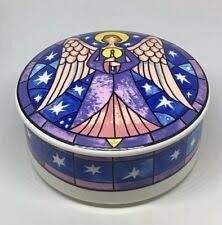It was 1943 and I was in my senior year of kindergarten. The Second World Was in the Netherlands was intensifying and most families were focused on safety, the basics of life such as food, shelter and the continuation of education and health care in cities not destroyed by war.
In my Kindergarten class in the mornings, we started off sitting in assigned places. Usually it was girl, boy, girl, boy. Carl Leonard sat next to me in a double seat. The reason I remember him is because he had lots of energy and found an outlet for it by pulling as many of the girls’ braids as he could reach as well as pulling on their earrings which some girls wore. These silver earrings were usually in the shape of tiny acorns that hung down from their pierced ear lobes. Despite Carl’s behaviour, somehow, I thought my joy would be complete if I could wear earrings. Dealing with Carl would be a minor irritation.
Image: Unsplash/Daihana Monares
Instinctively I knew that if I asked my mom for earrings her reply would probably be that one of my ten siblings were in the line-up for such items as hand-knitted sweaters, coats, or shoes. She did not exactly state that, but I knew how the family budget worked. Earrings were not high on the list of priorities.
I had tried several times to make the earring request to my dad, but the standard reply was “We’ll see”.
One day, somewhat like the persistent woman of the Gospel and the judge (although my case was not so much about justice), I opened the door to our store situated at the front of our house thinking that all the customers had gone. Ordinarily this move was out of bounds for us children especially when there were customers in the store. I saw only Dad and after pulling him down to my height I whispered in his ear once again “Could I please have a pair of earrings?” Just as he had said “We’ll see”, I saw Mrs. B., a regular customer, whom I had not noticed, still in the store. I left, determined as ever to persist in my quest.
The following week Mrs. B came back for her weekly shopping and asked my dad if I could come to see her in the store. What I obviously did not know and found out much later was that Mrs. B. had inquired what I had whispered into Dad’s ear the week before. Mrs. B. showed me a tiny round box with the picture of an angel’s head on it. When she opened the box there was a small pair of gold earrings with a coral stone in each center. I just could not believe that such earrings existed. My father thanked Mrs. B. and then indicated I should also do so, which I did. Only much later did I discover that my father did compensate Mrs. B. for this gift. What could not be compensated for was the loss Mrs. B. shared with my parents only.
The earrings had belonged to Mrs. B’s only daughter who had died during the war in a bombardment.
In my reflection on this remote memory, I realized that out of the immense pain of losing her only child, Mrs. B (who was widowed) had found the generosity and courage to gift me with a precious possession of her only child. This paradox of deep and lasting pain which gives the gift and the joy of a child who receives the gift shows the capacity of the human heart to be generative, reach out and create something positive which moves us to Wholeness.
-Sister Mary Vandersteen, csj



